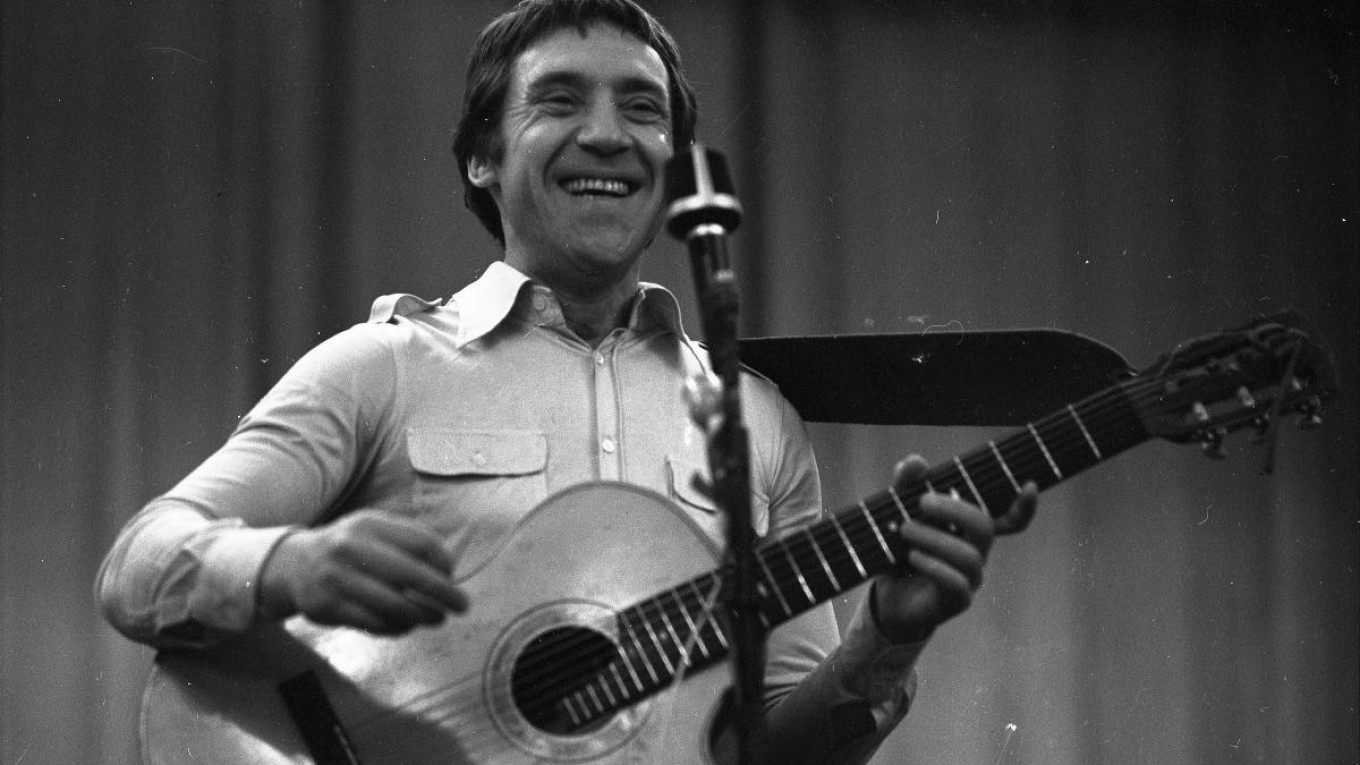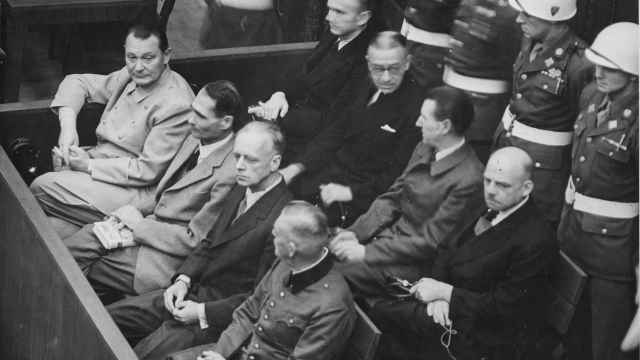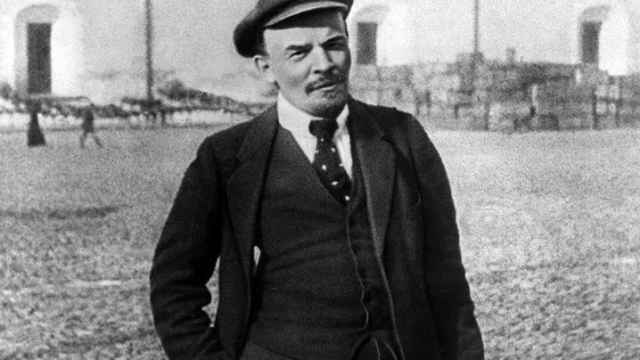It’s "original gulag, Mississippi Gothic and Vladimir Vysotsky week" on Moscow TV, with the small screen offering viewers fine feature films and documentaries on a rich array of themes: The origins of the Soviet state security system, the United States' greatest Southern writer, the archetypal Big Brother and Russia’s greatest actor-singer-poet of the 20th century. Here’s the where and when:
On MONDAY Kultura’s excellent “Telling Time” documentary series takes on a topic both weightier and more timely than most with “The All-Russian Extraordinary Commission (Cheka): The First Steps” (2017). This latest installment of the how-the-past-was-seen-in-its-present chronicle offers, as the trailer notes, “The first cinema newsreel account of the work of the Cheka [BЧК]” – the organizational progenitor of the Soviet secret police and spying organizations, which were many and fearful. And are not exactly extinct.
The significance of this organization is hard to overestimate but easy enough to summarize: “In December 1917 the Council of People's Commissars formed the All-Russian Extraordinary Commission – the Cheka – with the aim of combatting counter-revolution and sabotage. The Chekists began with property confiscation, deportation into forced labor and eviction from the major cities of all who were suspected of disloyalty to the Bolsheviks.
"[This] was inconceivable… without intimidation, and the Cheka became a machine for intimidating and suppressing any resistance to the new government. In August 1918, Lenin demanded that ‘the Soviet Republic be protected from class enemies by isolating them in concentration camps,’ and this order from the Chief People's Commissar was immediately carried out – meaning that concentration camps appeared in Russia in the first year of Soviet power.”
Join host Viktor Batalin and “special services historian” Vadim Burlak for a unique cinematic look at the infancy of a vast system of repression that took decades to build and generations to dismantle – and incompletely at that.
Telling Time. “The All-Russian Extraordinary Commission (Cheka): The First Steps” / Запечатленное время. "ВЧК: Первые шаги". Kultura, Monday at 9:20 p.m.
On TUESDAY viewers can ponder anew a question that has long stumped local literati of two nationalities: The popular Russian pantheon of Great American Authors is anchored by such “straightforward” prose writers as Twain, Hemingway, Fitzgerald and Salinger – so how did it come to include the modernist, regional dialect-heavy, hard-to-translate William Faulkner? Put otherwise: Can Russians really be entertained by ornately-streamed events in a Mississippi county called Yoknapatawpha – or even spell it?
Easiest first: Of course they can – Йокнапатофа. As to explaining the remarkably successful translation of the Faulkner oeuvre into Russian, viewers can get a sense of what’s behind it when the Illiuzion + channel airs James Franco’s film of one the Southern Nobel laureate’s early masterworks, “As I Lay Dying” (2013).
The very idea of making a movie out of this 15-narrator, stream-of-consciousness account of Addie Bundren's cross-county journey to her grave may seem daunting in the extreme; and adding to it a soundtrack that renders the author's unique American-Southern-rural idiom into understandable Russian might seem next to impossible. Yet both can be done, and have been.
The big screen actually does a lot to “free up” the multiple-narration through the very movement that film by definition requires: the audience gets to see how the characters’ interior monologues are connected to and reflected in natural life and the real world – or James Franco's vision of them, anyway. Russian textual renditions of Faulkner, moreover, have always been the province of the country’s best English translators, led by Viktor Golyshev – “the patriarch of the national school of literary translation” – whose version of “Dying” won the prestigious Inostrannaya Literatura journal’s translation prize for 1990. To the extent that Faulkner is gettable in Russian, it’s Golyshev who got him.
This movie was a barely-released, very art-house film of modest backing, but it won several awards (including a nice nod at Cannes) and some high praise from highbrow critics (including the New York Times). Tune in and judge for yourself just how well the multiple transitions of language, culture and genre come off – and whether the Faulkner-in-Russia cult makes more sense afterwards. It'll likely be the most challenging thing you do on Tuesday, and quite probably the most worthwhile.
As I Lay Dying / Когда я умирала. Illiuzion +, Tuesday at 10:15 p.m.
Late WEDNESDAY night viewers can enjoy (if that’s the word) a very good cinematic version of one of the defining novels of the past century: Michael Radford’s adaptation of George Orwell’s “Nineteen Eighty-Four” (1984). If there is a film more timely for a 2017 Moscow audience – or for audiences across today’s budding “Eurasia,” “Oceania” and “Eastasia,” for that matter – it is difficult to think of it.
Orwell’s novel, as is well known here, had a Russian forerunner – Evgeny Zamyatin’s classic “We” (1921), which Orwell read (in French), reviewed and reportedly owned would serve “as the model for his next novel.” Yet the two accounts of dystopian societies are quite distinct: As one critic put it, “Orwell's novel is both bleaker and more topical than Zamyatin's, lacking entirely that ironic humor that pervades the Russian work.” This bleakness is felt throughout Radford’s adaptation – indeed, rather more so than in the first film version of the novel, Michael Anderson’s creditable 1956 rendition.
The New York Times’ Vincent Canby was right to call the Radford version “admirable, bleakly beautiful” though “not an easy film to watch” – which it shouldn’t be, of course, as the sad life and sadder fate of Winston Smith are meant to trouble us.
William Hurt has been called “perfect” as the beleaguered Winston, and both Suzanna Hamilton (Julia) and Richard Burton (O’Brien – his final role) are very fine as well. Tune in and appreciate this well-crafted cautionary tale; then watch the next evening news broadcast on Channel 1 – or even better (i.e. worse), the next presidential call-in show – and see how far you have to go before you sincerely love Big Brother.
Nineteen Eighty-Four / Тысяча девятьсот восемьдесят четвёртый. AMC, Thursday at 00:45 a.m.
On THURSDAY viewers seeking a better understanding of the cultural phenomenon that was Vladimir Vysotsky get a good look at the last year of his life in Pyotr Buslov’s “Vysotsky: Thanks for Being Alive” (2011). This “biographical drama” written by Buslov and Nikita Vysotsky (the performer’s son) was one of the most anticipated and discussed films in a long time – and, probably inevitably, one of the most controversial: everyone has his own Vysotsky, and everyone wants to keep him that way.
The man was a talent of the first rank in theater, film and poetry as well, a daring multi-venue creative artist of such breadth and national popularity that the Deep Stagnation cultural minders were forced to fight a constant battle within their own ranks (and kept losing it) over how to shape an official reaction to him: Vysotsky was too big to repress, impossible to co-opt and too real (un-Soviet) to encourage – so the great dead hand of Soviet officialdom wavered. And wavered. And finally waited him out.
While Russians continue to argue over “Thanks,” it is by any measure a production that demands attention and keeps you watching throughout. It made a lot of rubles, too, and continues to score very well on KinoPoisk (7.2/10). That said, it also bears mentioning that the sadness evoked by the last year of any great artist’s life is multiplied here by both the youth of the subject (1938-1980) and the knowledge that he didn’t make it to perestroika, much less 1991.
Yet there’s something heartening in the fact that Vysotsky as we see him here knew a full year before his death that his time was at hand – and thus spent his final months in ways he felt appropriate. How many stars of such magnitude are that “lucky”?
Vysotsky: Thanks for Being Alive / Высоцкий. Спасибо, что живой. Nashe Novoe Kino, Thursday at 12:50 p.m.
FRIDAY. The mini-genre of Soviet Cinema About Making Movies in the Crimea During the Russian Civil War was begun by Evgeny Karelov’s “Two Army Comrades” (1968) and ended by Nikita Mikhalkov’s “A Slave of Love” (1975). While “Slave” drew far more attention (and many more awards) outside the USSR, “Comrades” is a better film (ask any Russian) and surely deserves more attention now: It features two icons of Soviet/Russian performing arts – the late Oleg Yankovsky and the immortal Vladimir Vysotsky – along with a cast so good it feels cheap to call it “supporting.”
“Comrades” is also a great anomaly, a seemingly self-conflicted Soviet anti-war epic: The film actually summons up real sympathy for (are you sitting down?) the Russian Whites – the mortal enemies of the Party which, of course, paid to make the film.
The action unfolds in November 1920 as the sometimes heroic/often misguided Wrangel contingent is rapidly disintegrating: Both the Reds and their currently-allied Makhno confederates are closing in fast, and there’s not much Crimea left to back into. A two-man Bolshevik camera crew (Yankovsky and Bykov) is sent up in a plane with a war-booty 35-mm movie camera to capture the White positions on film – and does so, but is forced down in the process, with the two Red moviemakers falling into the hands of the Makhnovtsy.
Meanwhile, the film’s second plot – which joins the first only at the end, and sadly – presents a gallant White cavalry officer named Brusentsov (Vysotsky), who successfully makes his way to Sevastopol for evacuation with Wrangel’s remnants. But once there he no longer sees the point; his life is unraveling, since everything that matters to him – homeland, wife and even his faithful horse – now belongs to the past.
“Comrades” has been labeled a tragicomedy, but a mood of elegiac melancholy is what prevails on balance. Screenwriters Yuly Dunsky and Valery Frid had both done Gulag stretches, and Karelov’s cinematic points of reference were two sobering classics: “Paths of Glory” and “All Quiet on the Western Front.” This is a serious and rewarding film, at all events, and one whose honored place in the nation’s film archive remains secure.
Two Army Comrades [aka Two Comrades Were Serving] / Cлужили два товарища. R1, Friday at 11:00 a.m.
Mark H. Teeter is the editor of Moscow TV Tonite on Facebook.
A Message from The Moscow Times:
Dear readers,
We are facing unprecedented challenges. Russia's Prosecutor General's Office has designated The Moscow Times as an "undesirable" organization, criminalizing our work and putting our staff at risk of prosecution. This follows our earlier unjust labeling as a "foreign agent."
These actions are direct attempts to silence independent journalism in Russia. The authorities claim our work "discredits the decisions of the Russian leadership." We see things differently: we strive to provide accurate, unbiased reporting on Russia.
We, the journalists of The Moscow Times, refuse to be silenced. But to continue our work, we need your help.
Your support, no matter how small, makes a world of difference. If you can, please support us monthly starting from just $2. It's quick to set up, and every contribution makes a significant impact.
By supporting The Moscow Times, you're defending open, independent journalism in the face of repression. Thank you for standing with us.
Remind me later.







